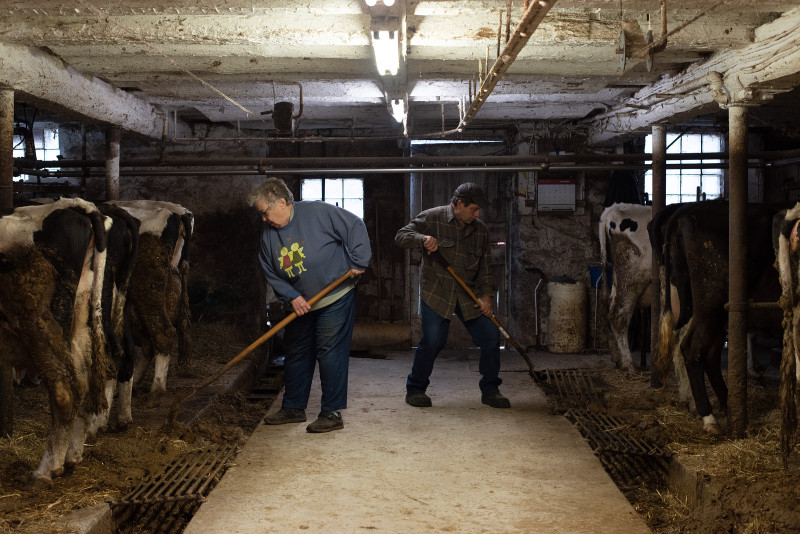
A perfect storm of factors has lead to the biggest crisis for American farmers in decades. Here’s what it’s like to be an American farmer in 2019.
Source: American Farmers Are in Crisis. Here’s Why | Time
Read this article. It’s important. Yes, it’s filtered through the requisite anti-Trumpism and climate alarmism of the mainstream media. But the reality it describes, for small family farms in America, is one which needs to be understood:
“In the American imagination, at least, the family farm still exists as it does on holiday greeting cards: as a picturesque, modestly prosperous expanse that wholesomely fills the space between the urban centers where most of us live.
“But it has been declining for generations, and the closing days of 2019 find small farms pummeled from every side: a trade war, severe weather associated with climate change, tanking commodity prices related to globalization, political polarization, and corporate farming defined not by a silo and a red barn but technology and the efficiencies of scale. It is the worst crisis in decades.
“Chapter 12 farm bankruptcies were up 12 percent in the Midwest from July of 2018 to June of 2019; they’re up 50 percent in the Northwest. Tens of thousands have simply stopped farming, knowing that reorganization through bankruptcy won’t save them. The nation lost more than 100,000 farms between 2011 and 2018; 12,000 of those between 2017 and 2018 alone.”
That is dismaying, to put it mildly. Indeed, for those of us who can see past the surface numbers to understand the implications, it is deeply frightening.
While there are a number of factors contributing to this crisis, I believe that the threatened demise of American small farms is at base an attack – and I would argue that it is in large measure a concerted and intentional one, by an unholy alliance of convenience between Big Government and Big Corporatism – on food sovereignty.
Every single one of the factors listed in the article – “a trade war, severe weather associated with climate change, tanking commodity prices related to globalization, political polarization, and corporate farming defined not by a silo and a red barn but technology and the efficiencies of scale” – can be traced directly to one of the two entities mentioned above, in some cases both.
So, where does food sovereignty come in – and what is it, anyway, and why does it matter?
Well, food sovereignty is defined as “the right of peoples to healthy and culturally-appropriate food produced through ecologically sound and sustainable methods, and their right to define their own food and agriculture systems.” It is in its essence localized and dispersed, rooted in family farms and local communities.
Big corporations hate this because it interferes with their profits, and big government hates it because it interferes with their control – thus the alliance-of-convenience mentioned above.
And yes, some of the factors that affect small farms are (presumably) unintended consequences of other issues – but the responses, the proposed “solutions,” by government and corporate interests alike, are always in the direction of greater centralization (“get big or get out,” or variations on the theme), greater industrialization and automation, more control, less human input and contact with the land, less local sovereignty.
The underlying reality is that food sovereignty is the basis of sovereignty, period. It doesn’t matter what your system of government is – capitalistic, communistic, or anything in between – you are not sovereign if you cannot control your own food supply: if you have to rely on someone else, state or corporation, to provide your food and to control what food is provided, and when, and how.
Now, obviously, most of us (by choice or necessity) are willing to trade a little sovereignty for convenience – we are no longer (for better or for worse) a nation of farmers. But the further we get from local agriculture, rooted in small family farms that are closely tied in with their local communities, the less sovereignty we all enjoy, and the more we are at the mercy of Someone Somewhere Else turning off the tap.
In other words, the demise of small, local, family farms is not just a shame – although it is! very much so – and it’s not just less healthy for consumers, communities, and the environment, although that is also true. It’s also dangerous, for our rights and freedoms, for liberty, sovereignty, independence.
Who controls the food, controls those who rely on it for survival. That’s the bottom line.
